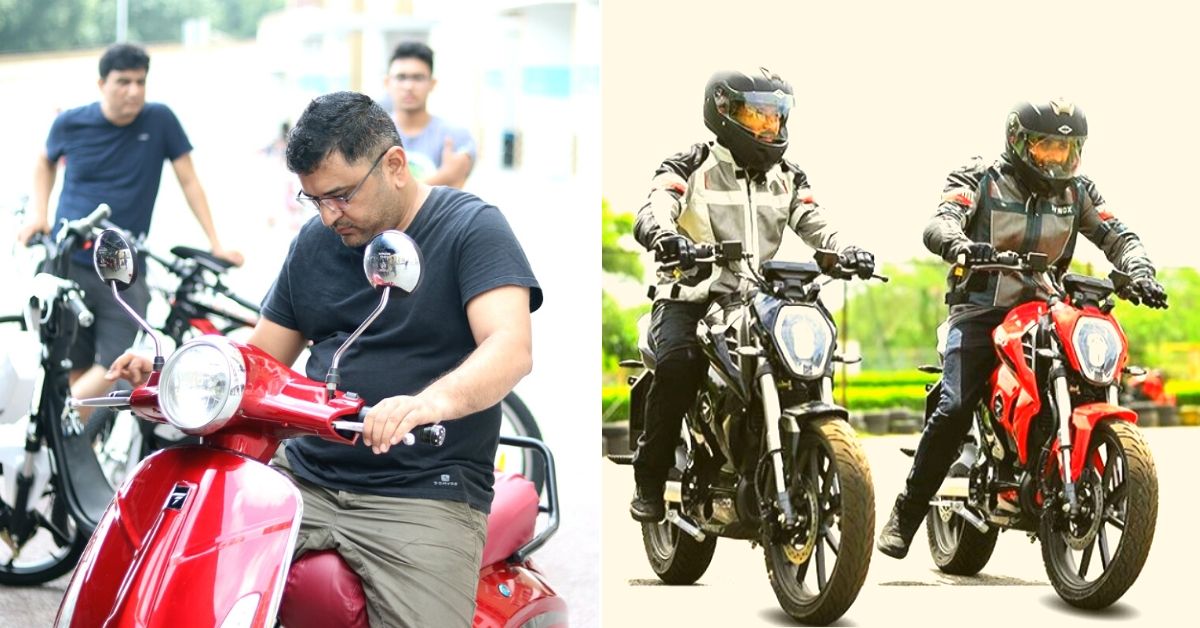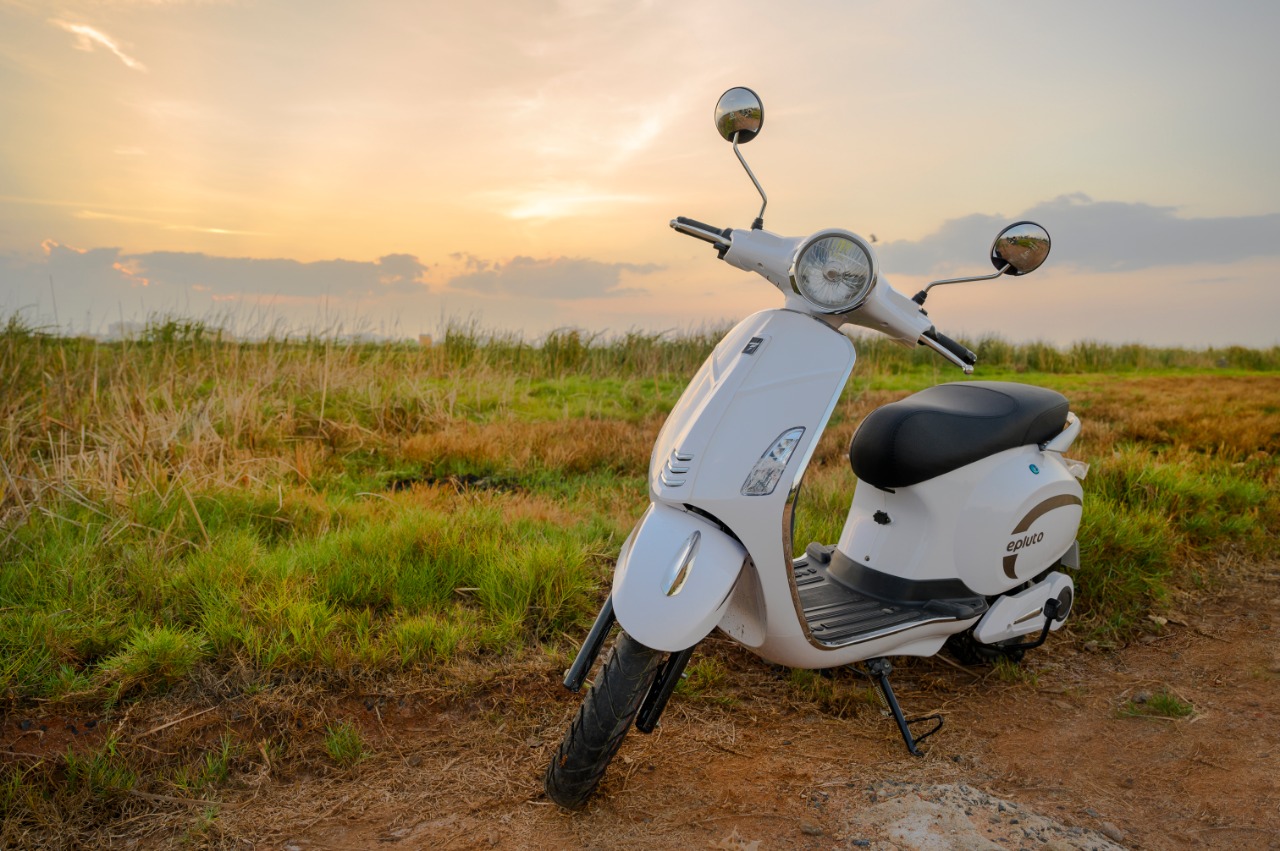Buying Your First Bike? 5 Reasons Why it Should be Electric!
From lower operating, maintenance costs to protecting the environment from harmful emissions, there is little reason why your next two-wheeler shouldn't be an electric one.

Earlier in July, my younger brother began his sojourn with higher education. Breaking into adulthood and wanting to experience freedom of movement, he wanted a two-wheeler. Like many parents across the country, mine are contemplating which two-wheeler vehicle to buy for my brother. Living in Delhi, a den of toxic air pollution, my suggestion was to go electric.
Here are five reasons why I think parents should really consider purchasing an electric two-wheeler for their children instead of a conventional IC (internal combustion):
1) Low running cost:
Before buying any vehicle, a large segment of Indian consumers look at fuel prices and mileage.
“Every electric scooter, for example, takes up one to three units of electricity per charge (approx Rs 10 per unit of electricity). Even high end two-wheelers don’t consume more than 3.5 units per charge. For two-wheelers with a range as low as 50 km to ones with 150 km, you’re shelling not more than Rs 30-35 per charge. This is a phenomenal difference as compared to IC engine vehicles. Include oil prices to the mix, and the cost issue is addressed,” says Guhan RP of GUGU Energy, speaking to The Better India.

2) Zero emissions & environment:
Shifting to electric will definitely help in reducing our intake of toxic emissions, particularly of the harmful carbon and nitrous oxide variety. According to the Supreme Court-monitored EPCA, fossil fuel-run vehicles contribute “as much as 40 per cent of total emission load in Delhi and roughly 30 per cent in the region”.
3) Convenience: You can charge any time, anywhere.
“With an electric vehicle, you don’t have to visit the petrol station ever. You can charge it either at your office or residence, and by morning your vehicle enjoys a full charge, you don’t have to wait in line at petrol stations,” says Nischal of BattRE, a Jaipur-based EV manufacturer.
4) Low Maintenance: Buying a vehicle is one thing, but maintaining is another ball game.
“The overall cost of ownership of the vehicle [electric scooter] over a period of five or six years is almost half of the cost petrol fueled vehicles. Running cost of vehicle per km is just around 10-15 paisa. It reduces maintenance costs to almost zero because a petrol-run two wheeler scooter has more than 2,000 moving parts, whereas an electric one has 20-25 moving parts. Thus, maintenance related costs decreases. It is also lighter in weight as compared to petrol/diesel scooter,” says Nischal Chaudhary of BattRE, a Jaipur-based electric scooter manufacturer.

5) Tax benefits: The government’s announcements in the Union Budget 2019-20 gave manufacturers of electric two-wheelers and potential consumers a lot to cheer for.
“Provision of additional income tax deduction of an amount upto Rs 1.5 Lakh on purchase of EVs would encourage customers to opt for EVs. Additionally, bringing down customs duty on lithium-ion cells to nil would further cut down the cost of batteries and help local battery manufacturers to scale-up the business,” says Sohinder Gill, Director General of SMEV, to The Economic Times.
“The government has already moved GST Council to lower the Goods and Services Tax on EVs from 12 percent to 5 percent and the additional income tax reduction is a major boost for end-consumers to purchase EVs. It addresses the concern of the upfront cost of purchasing electric vehicles,” says Tarun Mehta, CEO and Co-Founder of Ather Energy, speaking to the same publication.
Yes, there are a lot of concerns surrounding the electric vehicle segment, particularly with regards to the lack of charging infrastructure and indigenous sourcing of components, among other concerns. However, as Bajaj Auto Managing Director, Ravi Bajaj, told the media earlier this month that creation of demand for EVs and its adoption is squarely the job of manufacturers.
“We should not get caught in this vicious cycle of chicken-and-egg where we say whether EVs should come first or whether EV charging stations should come first because nobody is going to put up an infrastructure for anything unless they actually see demand (for EVs) on the roads . . . . This is our job that we have to put out the EVs, which are such that people buy it despite the absence of infrastructure and all the other known issues,” he said.

However, the government is trying to do its part. Earlier this year, the Urban Development Ministry issued guidelines stating that residential and commercial complexes will have to allot 20 per cent of their parking space for facilities for electric vehicle charging, while eateries will have to reserve space for charging kiosks. There is impetus on both sides to facilitate that transition to EV.
Also Read: With 100+ Km Range, These Electric Bikes & Scooters Won’t Leave You Stranded!
As a consumer, however, you have to take all these facets into account, but in the day of toxic air pollution, parents could do the responsible thing of buying an electric two-wheeler for their children. After all, it’s their lives we are trying to save.
(Edited by Saiqua Sultan)
Like this story? Or have something to share? Write to us: [email protected], or connect with us on Facebook and Twitter.
If you found our stories insightful, informative, or even just enjoyable, we invite you to consider making a voluntary payment to support the work we do at The Better India. Your contribution helps us continue producing quality content that educates, inspires, and drives positive change.
Choose one of the payment options below for your contribution-
By paying for the stories you value, you directly contribute to sustaining our efforts focused on making a difference in the world. Together, let’s ensure that impactful stories continue to be told and shared, enriching lives and communities alike.
Thank you for your support. Here are some frequently asked questions you might find helpful to know why you are contributing?


This story made me
-
97
-
121
-
89
-
167











